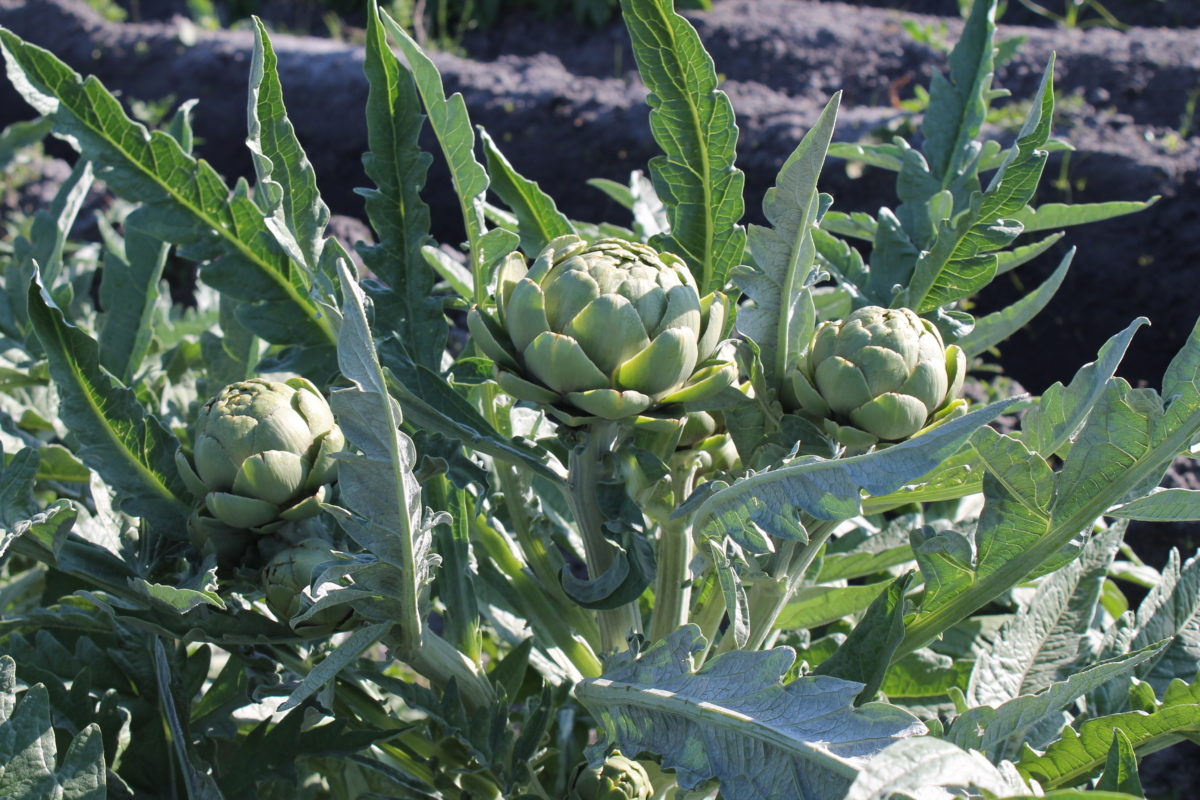By Lourdes Rodriguez Just past the midpoint of a pilot project to study if industrial hemp grows well in Florida, University of Florida Institute of Food and Agricultural Sciences (UF/IFAS) researchers are already looking ahead to see what more they can learn. The UF/IFAS Industrial Hemp Pilot Project team of scientists is engaged in a two-year research project started with hemp plantings in the spring of 2019. A report on the project’s findings will go …
Coronavirus Pandemic affects UF/IFAS Research Programs
By Clint Thompson The ongoing coronavirus pandemic is taking a toll on agricultural research programs at the University of Florida/IFAS. Some research has been halted since quarantine and social distancing rules were put in place in early March. “It is definitely having an impact on our research. We are slowing down many of the projects because there’s not a safe …
Florida Strawberry Festival’s Featured Fruit Comes From UF/IFAS Research
(UF/IFAS) — When you hear the words “Plant City,” what comes to mind? Strawberries, probably. As thousands of people come to Plant City for the annual Florida Strawberry Festival this month, many will eat various types of the fruit. They may be surprised to learn that University of Florida scientists toil in nearby labs and fields to develop the best …
Managing Black Rot in Cabbage
By Ashley Robinson Florida’s warm and wet climate can create the optimal environment for a multitude of cabbage diseases. Black rot is caused by the bacterium Xanthomonas campestris pv. Campestris is a significant issue for Florida cabbage growers. Not only can this disease cause major losses, but once a field is infected, it is difficult to get rid of the disease. “Black rot …
Research Underway for Florida Artichoke Production
By Ashley Robinson Despite California producing 99 percent of commercially grown artichokes in the United States, researchers at the University of Florida are hoping to profitably produce the antioxidant-rich superfood in the Sunshine State. Artichokes flourish in a cool environment and generally require 250 to 500 cumulative hours below 50 degrees for bud formation. Therefore, bud formation must be artificially …
Breeding Tastier Tomatoes in Different Environments
(UF/IFAS) — A University of Florida tomato expert is calling on researchers worldwide to use genetics to help farmers grow tastier tomatoes in many geographic locations. Consumers crave tasty tomatoes, but the trick comes in growing flavorful fruit in different environments, said Jay Scott, University of Florida Institute of Food and Agricultural Sciences (UF/IFAS) professor emeritus. “I am proposing a worldwide …
Scientists Seeking New Solutions for Fruit Fly Control
(UF/IFAS) — In the home, they seem to appear out of nowhere. A piece of fruit is placed on the kitchen counter, and suddenly there’s a fruit fly. But the bug commonly referred to as a fruit fly, Drosophila melanogaster, may more accurately be called a vinegar fly, with an appetite for rotting fruits. Instead, it’s a cousin, Drosophila suzukii, also known …
Drones Detect Two Tomato Diseases With 99 Percent Accuracy
(UF/IFAS) — New technology being developed by University of Florida scientists identifies two dangerous tomato diseases with 99 percent accuracy. This finding is critical because diseases can cost growers millions of dollars annually in the state’s third most valuable crop. Thus, the earlier farmers detect those ailments, the better their chances of treating them before the diseases cause excessive damage. …
Light Bulb Moments in the Improvement of Greenhouse Growing
By Aaron Hale (UGA/CAES) — The illuminated light bulb. It’s the symbol of a great idea come to life. Erico Mattos’ big idea doesn’t reinvent that iconic bulb exactly but reimagines how it can be used. Around the globe, greenhouses grow fruits and vegetables to provide a healthy food supply year-round. But as reliable as the sun is for providing light …
Managing Fusarium Wilt and Whiteflies in Watermelon
By Ashley Robinson Fusarium wilt is one of the most serious and difficult diseases to manage in watermelons and occurs in most production regions worldwide. The fungal disease can be seedborne and has great longevity in the soil, allowing the infested soil to also serve as a source of infection. FUSARIUM WILT Fusarium wilt has been a recurring issue for …










